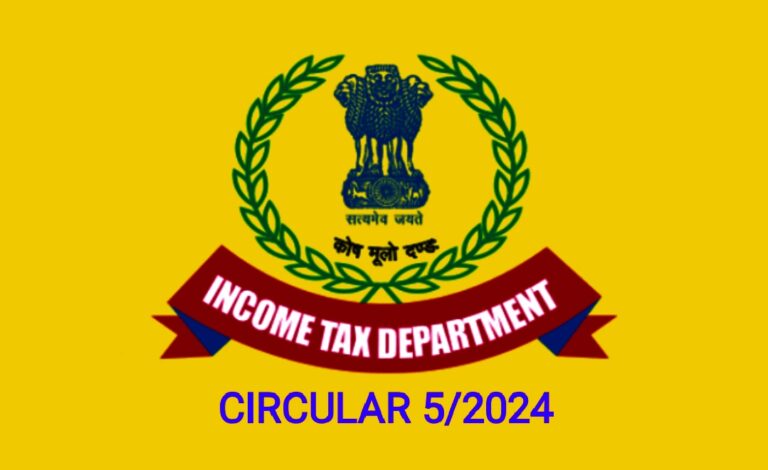The circular emphasizes the decision of Departmental appeals to be based on Merits of the case, aiming to reduce unnecessary litigation.
In its latest Circular No. 5/2024 dated March 15, 2024, the Central Board of Direct Taxes (CBDT) has introduced fresh guidelines under Section 268A of the Income-tax Act, 1961. The aim is to streamline the process of filing appeals by the Department before the Income Tax Appellate Tribunal (ITAT), High Courts, and Special Leave Petitions (SLPs) or appeals before the Supreme Court. These guidelines, building upon Circular No. 3/2018 from July 11, 2018, Circular No. 17/2019 from August 8, 2019, and a board letter dated August 20, 2018, focus on reducing unnecessary litigation.
Here’s a summary of the key points from the circular:
Overview of Departmental Appeals and Monetary Limits:
The monetary limits for filing an appeal or SLP (Special Leave Petition) are specified, except for certain exceptions where the decision to appeal will be based on the merits of the case, without considering the tax effect and monetary limits. These exceptions include:
- Constitutional invalidity of any provision of the Act, Rules, or notifications.
- Illegality or unconstitutionality of any order, notification, instruction, or circular.
- Cases based on information from law enforcement or intelligence agencies.
- Prosecution filed by the Department with pending trials or un-compounded convictions.
- Cases with adverse comments or costs against the Department.
- Matters where tax effect is not quantifiable, such as trust registrations or orders under section 263 of the Act.
- Cases related to undisclosed foreign income/assets, organized tax evasion, or other specified matters.
- Compliance with Court directions, writ matters, wealth tax, fringe benefit tax, equalization levy, etc.
- Litigation arising from TDS/TCS matters in domestic and international taxation.
- Other cases in the interest of justice or revenue as specified by the Board.
Calculation of Tax Effect:
The ‘tax effect’ is defined as the difference between the tax on the total income assessed and the tax if the income were reduced by the amount in dispute. This includes applicable surcharge and cess but excludes interest, except where the chargeability of interest is in dispute. In cases of penalty orders, the tax effect refers to the quantum of penalty deleted or reduced.
Guidelines for Assessing Officers:
Assessing Officers are required to calculate the tax effect for each assessment year and each assessee separately. Appeals can be filed for years where the tax effect exceeds specified monetary limits, and not for those where it falls below.
Reporting and Compliance:
Officers must maintain records of decisions not to file appeals due to low tax effect, and monthly reports are to be submitted as per CBDT’s Instruction No. 1/2024. The regional offices will collate and disseminate departmental stands on appeals within their regions.
Conclusion:
The circular emphasizes that the decision to file an appeal should be based on the merits of the case, aiming to reduce unnecessary litigation and provide clarity to taxpayers. It comes into effect immediately and applies to all appeals filed henceforth before the SC/HCs/Tribunals.
This new circular from the CBDT aims to provide clear guidelines for the Department regarding the filing of appeals in income tax cases. It outlines specific monetary limits for appeals, exceptions where appeals can be filed irrespective of tax effect, and instructions for assessing officers to calculate tax effects accurately. This move is expected to streamline the appeal process, reduce litigation, and bring more certainty to income tax assessments for taxpayers.
To Access the related Circular 3/2028 CLICK HERE
To Access the Related Circular 17/2019 CLICK HERE
Download the Related CBDT Letter Dated 20 Aug 2028
To Read about the Tax Benefits of NPS under Income Tax Act CLICK HERE
Also Read
Ahmedabad ITAT Upheld Section 11 Exemption Despite Missing Audit Report in Return Filing
